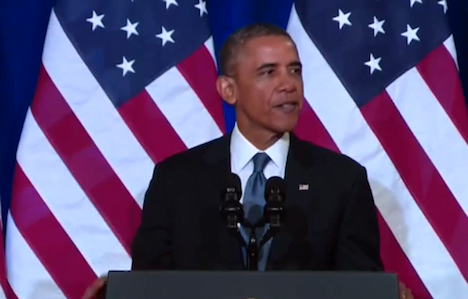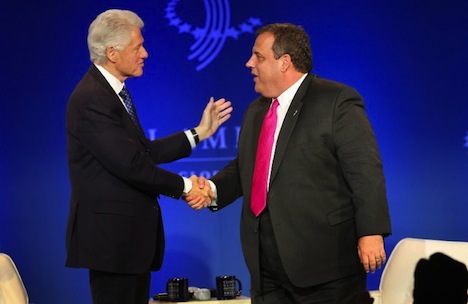US president Barack Obama outlined several reform proposals for the National Security Administration’s intelligence-gathering earlier today at a speech at the Justice Department.![]()
The reforms aren’t exactly breathtaking, but Brian Fong at Wonkblog has a great primer on what they entail:
- The secret Foreign Intelligence Surveillance Court will have to sign off to NSA requests to ‘query’ the phone metadata database.
- When the NSA is authorized to query the database, they can only examine data for the express number and any number connected to the express number — ‘two hops,’ as opposed to the ‘three-hops’ approach that is currently the NSA standard.
- The actually database may be entrusted in the hands of a third-party, non-governmental watchdog, though the details are far from clear.
- The US government will stop spying on ‘dozens’ of foreign leaders.
- John Podesta, a longtime figure in Democratic administrations, will lead a comprehensive review of big data and privacy.
It’s fairly easy to poke holes in these reforms — to the extent that they are even fully carried out. As of June 2013, the FISC has rejected just 11 out of 33,900 surveillance requests since its creation in 1979. That’s a 99.97% success rate for the government, which hardly constitutes a meaningful check. Moreover, as this interactive feature from The Guardian shows, cutting back from the ‘three-hop’ approach to the ‘two-hop’ approach is meaningful, but with such a compliant judicial check, there’s nothing stopping an NSA employee from going back to the FISC for further authority. (By the way, when did US intelligence policy start taking its cues from a marginal 1990s Kevin Bacon film?)
It’s even more skeptical whether the NSA database will be transferred to a truly independent third party. Of course, the US government will certainly continue to spy on world leaders, even if it backs away from spying on the leaders of its top allies. Podesta, a former Clinton chief of staff, co-chair of the Obama transition team and chair of the Center for American Progress, a top progressive think tank in Washington DC, seems unlikely to rock the boat.
Moreover, the Obama administration has a relatively small well of goodwill on the issue. It’s been eight months since Obama, in another major speech on drone strikes, promised to limit drone strikes and to minimize casualties, pledging also greater transparency. But the drone strikes policy remains shrouded in mystery today, and it’s unclear where the ‘covert’ operations of the Central Intelligence Agency end and the ‘clandestine’ operations of the US military, especially the Joint Special Operations Command begin. Just before Christmas, the US government killed 15 civilians in an attack on what turned out to be a Yemeni wedding party, drawing massive rebuke both inside Yemen and beyond. There’s not a whole lot of evidence that the Obama administration has seriously reformed its drone strikes policies.
So while a fancy speech on NSA reform is great, there’s absolutely no evidence that the Obama administration really takes intelligence reform seriously. Though Obama’s speech was couched in the same constitutional-professor-in-chief tone as the drone speech, he blamed virtually everyone except his own administration for having to address the NSA mission creep that’s occurred on his watch: Continue reading A few quick thoughts on Obama’s NSA reform speech

